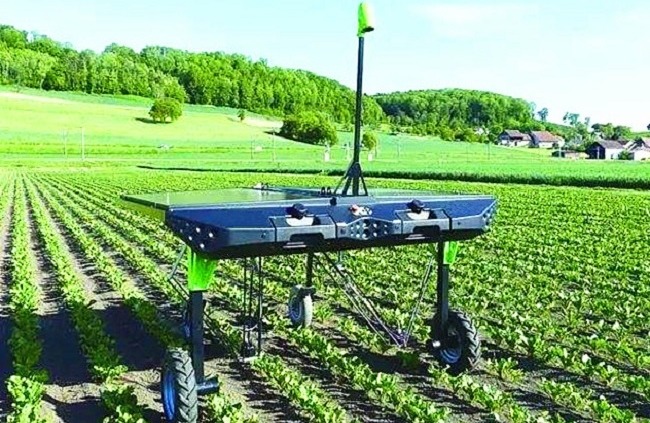Aigen develops solar-powered weeding robot
In recent years, due to the increasing contradiction between population and land, the utilization rate of soil has become higher and higher. Long-term use of excessive chemicals and unreasonable soil management have weakened carbon sequestration potential, more than 50% of soils have been degraded, and current agricultural production models can no longer guarantee the health of the land.
Land is vital, but also limited. Reconciling the competing needs of human beings for land with the needs of coping with climate change, protecting biodiversity and improving people’s lives is an urgent problem that needs to be solved at present. Reducing carbon emissions from agriculture will also be one of the biggest challenges facing the world in the coming decades.
Aigen, whose mission is to provide farmers with affordable, easy-to-use services, is building an autonomous solar-powered robotic platform. The platform can carry out weeding operations without destroying soil carbon storage potential, thus ensuring sustainable agricultural development.
People rely on the land to produce food, feed, fibre and fuel to sustain the world’s growing needs. Under a business-as-usual scenario, experts predict that agricultural land will triple by 2050 to more than 600 million hectares, about the size of India. Avoiding such large-scale transitions is critical to the global response to the effects of climate change.
Although the only thing Aigen’s agricultural tech robots can currently do is weeding, Aigen insists it’s not building a weeding robot, but on a mission to transform the planet through a path to negatively carbonize agriculture.



